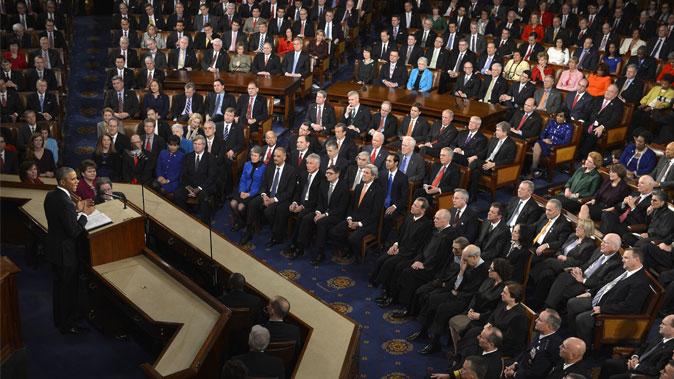Presidents are apt to adopt a conciliatory stance during the last two years of their presidency. In 2007, George W. Bush, facing a Democratic-controlled Congress, gave a State of the Union Address leaning on bipartisan issues that left the conservative wing of the Republican Party disappointed.
On paper, the political balance is tilted more against Obama now than it was for Bush. President Barack Obama’s approval rating of 43 percent, his lowest ever, is 6 points higher than Bush’s was in January 2007, but Republicans command a sizeably larger majority in Congress now, than Democrats did at the beginning of Bush’s last two years.
[pullquote]The centerpiece of Obama's address was a renewed call for economic populism.[/pullquote]





